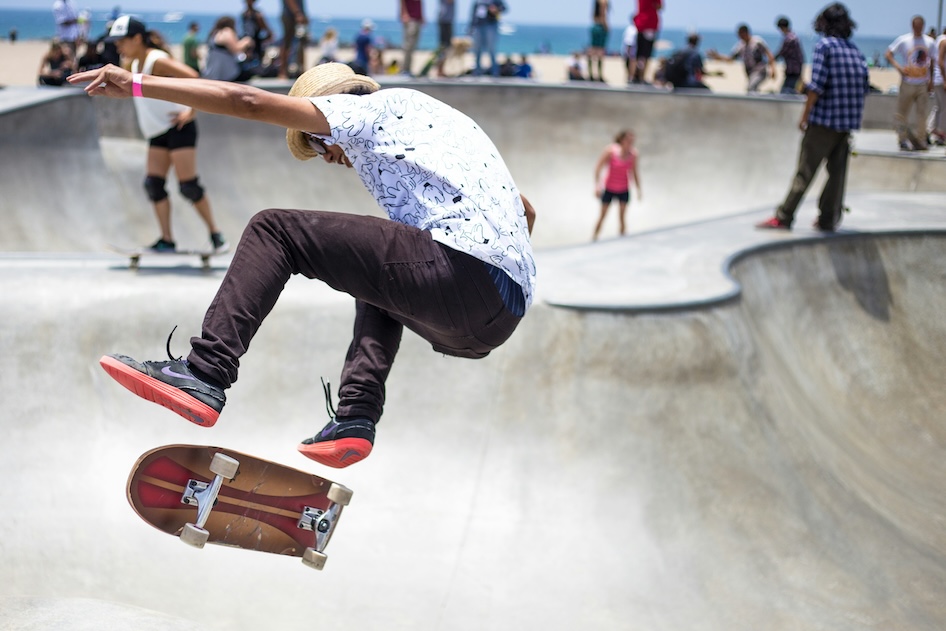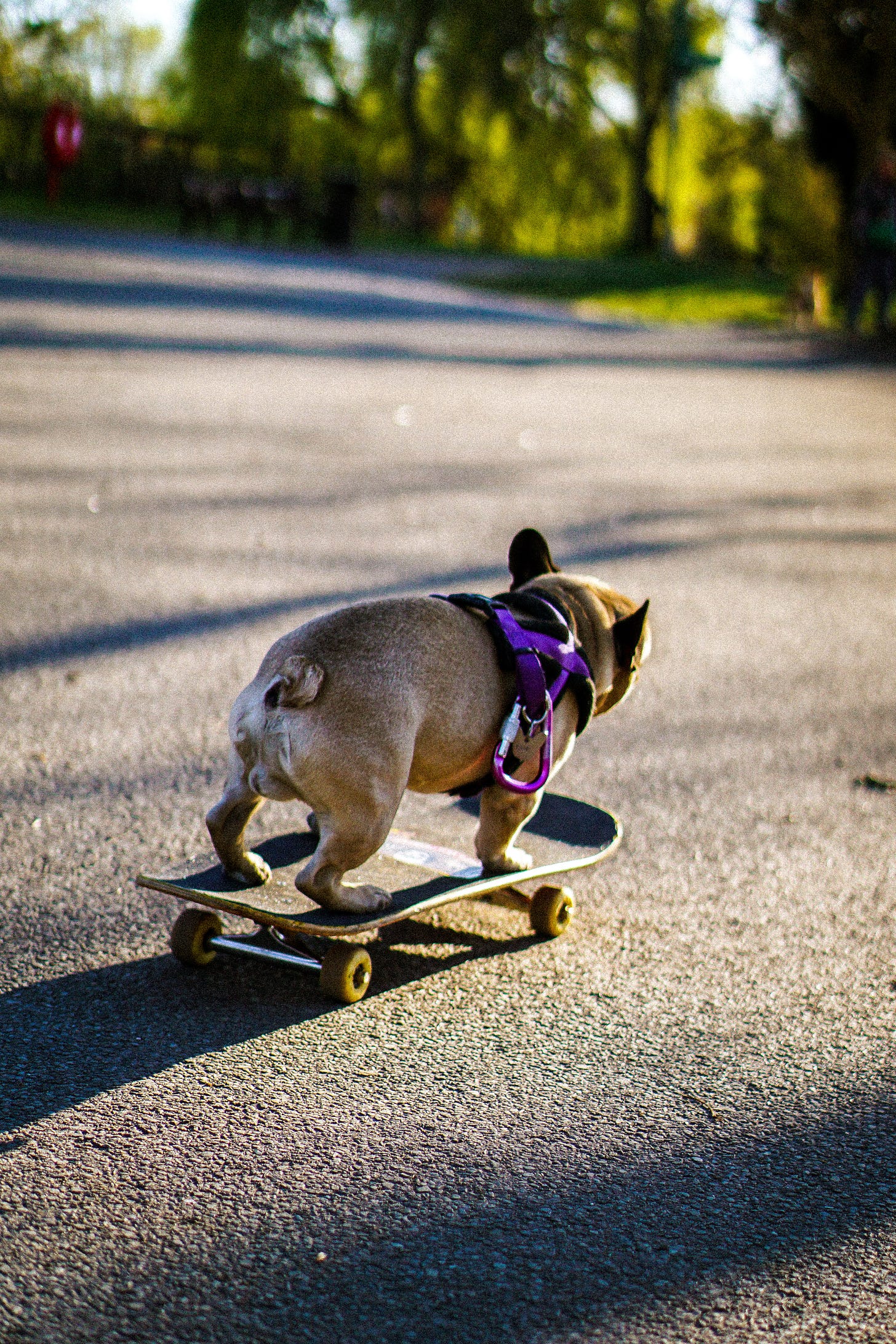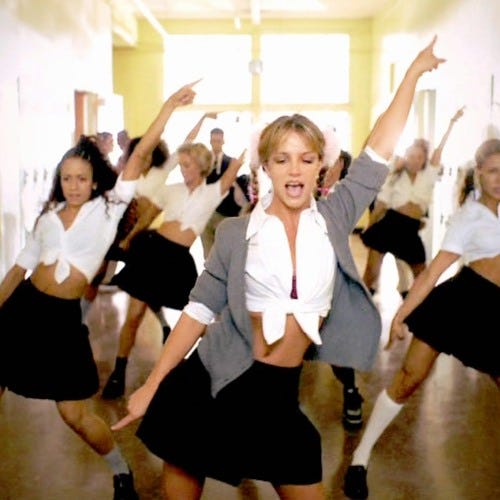Skate, Don’t Self-Hate
Heroic attempts. Good misses. And abundant self-forgiveness.

They kept getting back up. Over and over, like little Terminators.
You name it, they did it. Flip and shove-it tricks, grind and slide tricks, half-pipe tricks, ramp and grab tricks, foot plant and balance tricks and heavy doses of hey dude…watch this! tricks.
I stood frozen, face glued to the skateboard park’s chain link fencing, panting and dripping wet with sweat after finishing my afternoon runs. Back then, over twenty years ago, I figured I was just appreciating the grit and discipline of those learning a high-risk sport.
I was wrong.
Years later I figured out why I did that.
I was healing.
These skateboard punks modeled self-forgiveness better than nearly all of the spiritual figures and adults I had come across in my thirty years of living.
What pulled me in, what penetrated my heart, was the creed by which the skateboarders lived within the perimeters of that chain link fence. They would repeat it loudly to each other on a loop:
Good miss!
With every face plant, laceration, head slam or deep bruise, you’d hear one, two or five others call out: hey man, good miss!
With absolute sincerity.
Not: “you’ll get it next time!” or “that sucked!” or “why’d you do that one?”
Just: good miss!
You know what a fallen skateboarder does after hearing good miss! from their peers?
Rise.
And go at it again. And again. Little Terminators.
You see where this is going, don’t you? Good misses disarm perfectionism. Good misses make self-forgiveness easy. “Ok, I tried and wiped out. That shit hurt. I’m gonna go again.” I saw hundreds of wipe-outs and never once did I see a kid sulking or bowing out because he felt unworthy or shameful. Instead, they got back up with hope.
Failure, the Teacher
Skateboard culture knows failure. Their success rates on tricks is staggeringly low. Maybe 20%, by my observation. So 8 out of 10 times they miss.
Think about that. Would you keep throwing yourself into something if successful only 2 out of 10 times?
Their messaging around failure captivated me. I needed to hear it and I needed to feel it.
I littered my twenties with a consistent string of failures. Relationships, career choices, academics, etc. I’m grateful now for those struggles–failure has been a wise teacher–but by the time I hit thirty my confidence was rattled. I had no one to good miss me. I had plenty of: you’ll figure out your life one day…or…try harder…or…the worst: silence and avoidance.
I believe children are wired for tenacious self-forgiveness. Geez, the little ones, like little drunken dough balls, fall over themselves constantly. Then, they rise, and rise gloriously to a chorus of adults good miss-ing them along. They reward us with toothless grins.
We soooo fully want that for them, don’t we? We want falling and rising for them, for we intuitively and instinctively know that that process is living in accord with the cycle of life itself. We know that there is no process of life more important to live in tune with than that one.
For ourselves, as adults? Naw…not so much.
The Rise-Fall of Self-Forgiveness

Why don’t we want that for ourselves?
Too often, we’re so busy trying NOT to fall off our skateboard that we deprive ourselves the opportunity to evolve through falling. I get it…by this point in life, we’ve had enough, and witnessed enough, grind-and-slide and stair jumping tumbles to give us pause.
Here is my proposal: self-forgiveness, for most of us, requires a perceptual shift. It calls forth our abundant imagination, not our limited will.
If I have learned anything from those skateboarding punks, it is this: the real reward isn’t the accomplished feat. The real reward is giving the center of your being the freedom to press out into the world with no risk of shame or fear of failure. Good misses reinforce your right to this freedom.
Further, the real reward is knowing that the essential question in skateboarding and beyond is not did I win? but instead, how well am I aligned with the natural cycle of rising and falling?
We too easily chop life up into pairs of opposites. Light needs dark. Success needs failure. Openness balances closedness. Small can’t exist without big. But these pairs are not separate entities—they are, in fact, all part of one flowing dynamic. Rising and falling then are the same thing—mere expressions of one continuous action, just as the crest and trough of a wave together express a “wave.” Good misses remind us how we instinctively know that that reality—our “rise-fall wave” reality—is generative, and they encourage us to flow with it.
Because in flowing with it, we are most fully alive.
When you fully accept your participation in this flow, you’ve created self-forgiveness. You have given yourself full permission to flow with the rise-fall wave.
Voila.
No need then to walk miles on broken glass to relieve yourself from the burden of not forgiving yourself. Imagination . . . not will.
A small step further: when you fully embrace your participation in the rise-fall wave, you’ll find joy . . . even if it is sometimes served with a side of concrete.
And hey, it’s wonderful having a supportive crew extending good misses to you, but they aren’t easy to come by. Who in your life is going to tell you these things: “You really poured yourself into that job and your boss reneged on his/her promises for your advancement. Good miss, man.” Or . . . “You loved him fully and he still left you for that other woman. Good miss, girl.”
If you have that crew, great! If not, start by being your own crew and being a good crew member to others. Who knows, they may start good missing you back.
And if you don’t land that trick with your friends or family then—from my heart to yours—Good miss!



